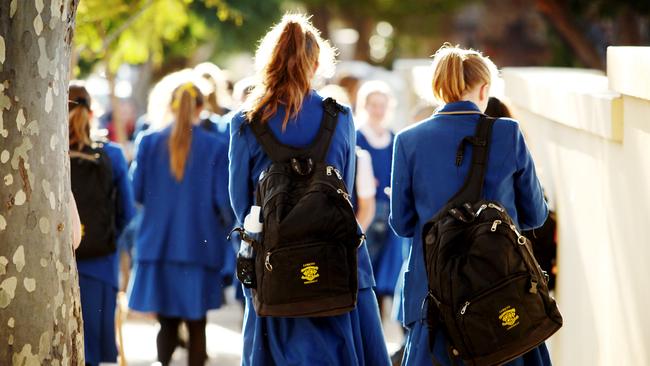Entry-level jobs for school leavers may be replaced by technology
Parents believe work experience should be compulsory amid warnings that school leavers’ jobs are drying up.

Teenagers are on notice they could be one of the most vulnerable groups’ in the workplaces of the future because many entry-level jobs they traditionally rely upon to enter the labour force are at risk of technological disruption.
The warning comes from government education officials to a parliamentary investigation into the best ways to move young people from school to work.
Parents are also suggesting work experience during school years be mandatory, and the Australian Industry Group’s Megan Lilly says an important structural change to the workforce is the growth of the “gig economy’’.
“There is an increased demand for more flexible and autonomous work leading many to engage in freelancing,’’ Ms Lilly, the Ai Group’s head of workforce development, told the inquiry chaired by Queensland Liberal National Party MP Andrew Laming.
Federal Education Department officials warn in their submission that the future of work will not be homogenous across Australia and “some groups and regions will have greater opportunities than others’’.
The department also hits on a common complaint from business that young Australians are often encouraged into university and overlook the opportunities to develop in-demand skills through vocational education.
“An entrenched emphasis on academic success in traditional subjects to gain entry to university means many students are not considering employer-valued vocational education and training pathways, even when these options may better suit students’ talents and interests, and have better job outcomes,’’ it said.
Skill shortage research shows there are 22 trade occupations experiencing a national shortage but at the same time apprenticeship and trainee numbers have fallen to their lowest level in 10 years.
Young Australians also need to build better enterprise skills and gain the type of industry experience that employers are looking for as the economy changes, the department said.
The Federation of Parents and Citizens Associations of NSW said that “considering the value of work experience during school years, the government should take a further step of either making work experience mandatory for all students aged between 14-16 years or at least making the offer of work experience mandatory for all schools’’.
Most students have the opportunity to do work experience, usually for about a week, in either Year 9 or 10.
The P&C Federation also believes schools should develop relationships with local businesses as well as organise recruitment officers and human resource managers as guest speakers.
They could advise students on writing resumes and practice interview skills.
The inquiry, whose deputy chairwoman is Labor MP Terri Butler, begins hearings today.


